Conference Discussion Leaders
Ancient Wisdom on Wellness for a Peaceful and Harmonious World
Gautama Buddha saw four sights which moved him to seek answers to the problem of public health and wellness: an old person suffering the ravages of age, a sick person suffering disease, a dead body and a Spartan looking for answers to human condition.
He was depressed seeing the first three sights of morbidity and mortality while the fourth motivated him to emulate the Spartan: he too would seek answers to the problem of health and mortality.
The Buddha contemplated long and hard rediscovering insights of ancient Vedic yoga system. He immediately started teaching these practices to create inner balance managing stressful kleshas that lead to morbidity. It was the genius of Buddha that revived these practices and set the stage to mainstream them with significant impact on the state of health and wellness.
Kleshas such as likes, dislike, fears and sense of helplessness lead to mere survival oriented living from the emotional limbic brain eliciting unhealthy and unhappy “fight or flight response[i]”. On the contrary, the practices that Buddha taught lead to thoughtful living from the considerate neocortex eliciting healthy and happy “relaxation response[ii]” which neutralises the former.
Shiv will present on how these ancient practices can cultivate wellness and oneness in modern lives.
“Fight or flight response” results in the production of stress hormone called cortisol and “relaxation response” in the production of DHEAS. An excess of cortisol relative to DHEAS in our bodies can result in personal morbidity and unhappiness and in the fetus if we are pregnant. Recent research[iii] proves what has been known from antiquity that healthy and happy mothers give birth to and raise healthy and happy children.
Today’s children are tomorrow’s adults. If they have peaceful and harmonious minds, we build a peaceful and harmonious world. Kumi Kaise will present her thoughts on the role of a mentor who also acts as a role model with his/her own life example in shaping the lives and minds of future generations through shaping the lives and minds of mothers to be.
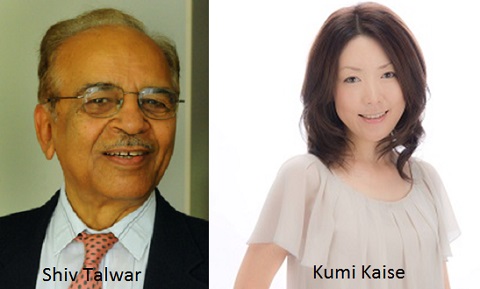
Dr. Shiv Talwar’s professional life was spent in the academy teaching the building of bridges across spatial gaps, now his retirement is focused on building bridges across wide chasms across hearts and minds of diverse humanity. For this purpose, he founded Spiritual Heritage Education Network Inc. (SHEN) of which he is the president.
Born in Japan, Kumi Kaise worked as an editor for a PC magazine after graduating from college. After having a family with two children, Kumi started offering a leadership course based on Buddhism.
Highly experienced in lecturing internationally, Kumi is the president of CLOVER Co., Ltd in Japan with the goal of training resources that contribute to the development of the world, the community and the family.
Conscious Business for a Thriving Earth
Steve Farrell addresses the topic of greed in business. Greed is divisive of humankind. It leads to mistrust preventing feelings of oneness, and to states of fight or flight preventing feelings of wellness also.
In his presentation, Steve Farrell makes a compelling case for Conscious Business. He presents an overview of his Conscious Business initiative Program.
The presentation addresses 3 key questions:
- What is the Conscious Business Initiative?
- Why is Conscious Business vitally important?
- How can you make a difference?
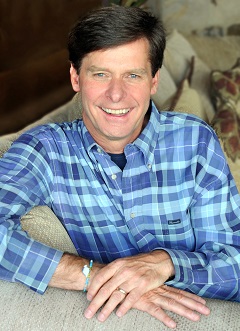
Steve Farrell is the President and Worldwide Executive Director for Humanity’s Team, a global grassroots spiritual movement focused on awakening and embodying Oneness so humanity may enjoy a sustainable world of peace, harmony and happiness. Humanity’s Team presently has over 580,000 friends in over 150 countries.
Humanity’s Team projects include: Global Oneness Day – a day that Humanity’s Team created following its visit to the United Nations in May 2010; a Oneness Declaration; a year-round Living in Oneness summit; an annual Spiritual Leadership Award; a Conscious Business Declaration, Conscious Business Practitioner Training & Certification, Community Circle, prayer and meditation programs; and service projects focused on helping people and the environment.
Before Steve became involved with Humanity’s Team he co-founded and led two high growth technology companies based in Silicon Valley in the 1990’s that were featured in the INC 500 and spanned the United States and Europe. At this time he was an officer in the Young Entrepreneurs’ Organization and the Young President’s Organization. But he walked away because he felt a calling to help create a new dream based on the Divine in life that humanity can manifest together.
Steve lives with his wife Stephanie and his two children in Boulder, Colorado.
Humanity’s Team is an international spiritual movement whose purpose is to communicate and demonstrate the timeless truth that We Are All One, with the Divine and all life – caring for each other and the world we share – so that people's actions reflect this profound understanding within a generation. We believe that living this truth is essential to solving the most chronic and acute world problems and vital to creating a sustainable world of peace, harmony and happiness.
An Interview of Huston Smith
 Huston Smith (May 31, 1919 – December 30, 2016), a sage in the world of religion. wrote, "Religion is the call to confront reality; to master the self."
Huston Smith (May 31, 1919 – December 30, 2016), a sage in the world of religion. wrote, "Religion is the call to confront reality; to master the self."
His book, "The World's Religions," is still widely used on college campuses. Published in 1958, his book sold more than three million copies. The book examines the world’s major faiths as well as those of indigenous peoples, observing that all express the Absolute which is indescribable.
He had trained with Zen masters in Japan, camped with aborigines in Australia, practiced yoga with Hindu holy men, whirled with ecstatic Sufi Islamic dervishes and dropped peyote with Native American shamans. He didn't just study religions; he lived them. Yet he never stopped being a Christian saying, "God is defined by Jesus but not confined to Jesus.”
"Anyone who is only Japanese or American, only Oriental or Occidental, is but half human," Smith wrote at the beginning of "The World's Religions." "The other half that beats with the pulse of all humanity has yet to be awakened."

Like Huston Smith, Dr. Darrol Bryant did not just read books on different religions. He immersed himself in Hinduism, Sikhism, Zoroastrianism and others. He stayed in Buddhist monasteries in Korea and Japan, visited Mosques in Jordan, Israel, Turkey, and China. He has engaged Hindus, Muslims, Sikhs, Tibetan Buddhists, Parsees and Christians in India – he has been to India more than 20 times. It is these encounters – and subsequent friendships – that have shaped his life and attitude towards the world’s religious pathways, these manifold ways to meaning.
Distinguished Professor Emeritus and currently Director of the Centre for Dialogue & Spirituality in the World Religions at Renison University College/University of Waterloo, he was educated at Concordia College (BA Philosophy & Political Science), Harvard Divinity School (STB, Theology), and the Institute of Christian Thought, St. Michael’s University College (PhD, Special Religious Studies). He taught at Waterloo Lutheran University (now Wilfrid Laurier) 1967-69 and Renison College, University of Waterloo (1973-2007). He is the author/editor of more than 25 volumes in the study of religion, most recently, the 3rd edition of Religion in a New Key and three volumes of Ways of the Spirit: Celebrating Dialogue, Diversity & Spirituality, Ways of the Spirit: Voices of Women, and Ways of the Spirit: Persons, Communities & Spiritualities.
In 2016, he convened a Contemplative Seminar on Practices of Compassion in Hyderabad, India, together with his good friend, the Venerable Doboom Tulku.
Round Table Discussion - 1
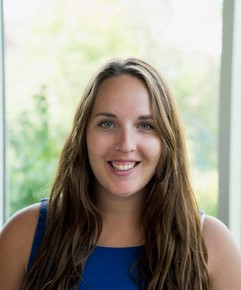
Lindsay Sheridan will moderate the first round table discussion of this conference. Currently pursuing a Master’s degree in Peace and Conflict Studies at the University of Waterloo; Lindsay Sheridan received an Honours Bachelor Degree in Legal Studies with a minor in Peace and Conflict Studies from the University of Waterloo. Lindsay has always be fascinated with spirituality and changing the global narrative to one of interconnectedness and inclusivity. She is the Communications Executive for the MPACS Society Council at Conrad Grebel University College.
A Framework for Conscientious Engagement
This presentation is an introduction to a framework designed to help educators develop authenticity and agency. It is based on the ancient wisdom of the ages that all human beings are made up of mind, body and spirit and have access to a creative divine intelligence. Rios will discuss how teachers need to activate all three domains in order to teach the whole child and to transform our work for equity in education.
With advancements in social neuroscience, educators now recognize that threatening thoughts and emotions impact our behavior and cognitive functioning. Rios will discuss how this is a critical time to bring together science and ancient traditions, beliefs and practices that speak to our capacity to develop consciousness of our underlying Oneness. Rios will outline six principles for Conscientious Engagement that help educators heighten awareness of the nature of thoughts and language, how we behave in professional relationships and how we channel our energy.

Dr. Raquel Ríos is the author of the book Teacher Agency for Equity: A Framework for Conscientious Engagement (Routledge Press, 2017). She has extensive experience designing and delivering curriculum and instruction to teachers, instructional coaches and leaders. She has worked nationally across the United States and internationally in Spain, the United Arab Emirates and Puerto Rico. She holds a PhD in Educational Leadership from Touro University International, a MS in Elementary Education from Lehman College and a BS in Secondary Foreign Language education from New York University. Currently, she is an instructional designer at New Teacher Center, a national resource on mentoring and coaching for teacher effectiveness located in Santa Cruz, California. She lives and works out of New York City.
Contact: rios@realworldpd.org
Website: ConscientiousEngagement.com
Vedic Riddles and Buddhist Humour
This presentation will address ancient Vedic and Buddhist sources by comparing and contrasting cosmogonic accounts of world origins. A re-examination of selected texts from the Rig Veda and Buddhist literature will test the extent to which these traditions were in dialogue and debate about ideas of oneness and wellness. Implications and applications to modern living will be suggested.

Dr. Jason Neelis is an Associate Professor in the Religion and Culture Department at Wilfrid Laurier University, where he has been teaching since 2010. He has taught various courses on South Asian religions, including Hindu Traditions and Buddhist Narratives. His book on Early Buddhist Transmission and Trade Networks (2011) traced paths and processes for Buddhist expansion within and beyond the northwestern borderlands of ancient India. He is currently coordinating a collaborative research project on Buddhist Rebirth Narratives in literary and Visual Cultures of Gandhara and developing a partnership to preserve and promote the cultural heritage of rock drawings and inscriptions in the Upper Indus region of northern Pakistan.
Spirituality to the Rescue: Sufi Perceptions for Enriching and Healing a Broken World
Stories and anecdotes derived from nature (in the form of oral literature) have since ancient times played an important role in shaping minds and personalities. The article would look at the Sufi stories and anecdotes translated by Idries Shah and their relevance to a world in a state of moral and emotional collapse as a result of its disposing off spiritual values as irrelevant and useless. Ancient mythical stories from South America or India for example have shown the way to spiritual awakening and enlightenment. The Jataka stories for instance make use of birds and animals to teach moral truths. In Sufi stories too a number of animals, birds and insects serve as analogies to enlighten the soul to rid itself of lower passions in order to bring it closer to the Divine Being.
The article would also see Sufism in the light of the writings of Seyyed Hossain Nasr who feels that a reconnection with God is essential to save the earth from imminent destruction. In fact he sees a close connection between the Earth’s calamities and the spiritual degradation of humanity.
Thus the article would attempt to interpret what it means to seek God on various levels, literal, psychological and spiritual in order to bring healing and harmony to the Earth. It would dwell chiefly on Sufi perceptions for its interpretation but a comparative perspective with spiritual values from other religions would not be ruled out.
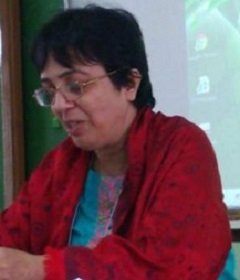
Dr. Sami Rafiq is a professor of English at Aligarh Muslim University, Aligarh, India. She is a translator, writer, poet and novelist who celebrates human values.
Sami Rafiq had her education from St. Mary's Convent Naini Tal and Scindia Kanya Vidyalaya, Gwalior. Her undergraduate and graduate studies are from Aligarh Muslim University in India.
She is the founding editor of Cloverleaf: Journal of Education in Evolvement and All Encompassing Spirituality, http://cloverleaf.spiritualeducation.org/.
Seeking Connection: Journey to Oneness and Wellness passes through the True Self
In Christian spirituality, as in other spiritual paths, there is a felt need to shed the false self or the ego and to become our true selves as human beings.
Thomas Merton, the Catholic contemplative writes, “ One of the paradoxes of the mystical life is this : that a man cannot enter into the deepest center of himself and pass through that center into God, unless he is able to pass entirely out of himself and empty himself and give himself to other people in the purity of a selfless love”
This is our mission as human beings, to love one another. We are truly well when we truly love unconditionally.
In this presentation, I hope to inspire all of us to give ourselves more diligently to the process of becoming. I will explore texts, both old and new, which offer advice and practical assistance for the journey.
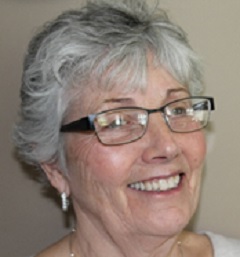
Anne Quinn Wallace has had a successful career in nursing and midwifery, working in England, Scotland, Channel isles, France and Spain, as well as her native Ireland.
Anne studied Buddhism and has practiced meditation for many years, under the guidance of Shinzen Young, a Zen master.
Upon retirement, from her career, she walked The Camino de Santiago as a discernment process and subsequently entered the Jesuit College at the Toronto School of Theology where she completed a Master’s Degree in Theology and a Diploma in Spiritual Direction. She presently teaches at Regis College in the Spiritual Direction program.
She is an active member of Interfaith Grand River and of St Jerome’s University Community and she offers spiritual direction to people in the Kitchener Waterloo region.
The Shadow of God: Rumi on Suffering and the Problem of Evil
Theodicy or the “Problem of Evil” is often presented, in theological terms, as the consequence of ascribing three attributes to God: Omnipotence (that He is “all powerful”), Omniscience (that He is “all knowing”), and Goodness. How can we account for the existence of evil while simultaneously affirm these attributes? The lecture will explore this question from the unique vantage of a thinker who, in line with much of the Sufi tradition, sees the presence of evil and also human suffering as necessary elements in the economy of human existence, and essential for final human liberation.
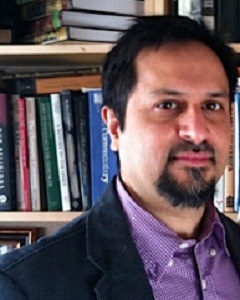
Dr. Atif Khalil is an Associate Professor at the University of Lethbridge's Department of Religious Studies where he teaches courses on Islamic theology, mysticism, art and world religions. His main area of research lies in Sufi thought, with secondary interests in comparative mysticism, inter-religious relations and medieval philosophy. His articles have appeared in Studies in Religion, the Journal of Islam & Christian-Muslim Relations, Sacred Web, the Oxford Journal of Islamic Studies, Philosophy East and West, and the Muslim World. He is also the author of the forthcoming book, Repentance and the Return to God in Early Sufism. In the summer of 2016, he is scheduled to hold the Ken'an Rifai Distinguished Professorship of Islamic Studies at the Institute for Advanced Humanistic Studies at Peking University in China.
Round Table Discussion - 2
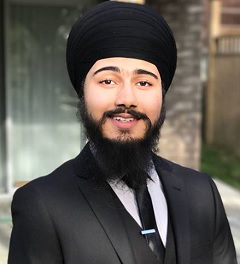
Simran Parmar will moderate the second round table discussion of this conference. Born in Waterloo, Simran is studying Biomedical Science with a minor in Psychology at the University of Waterloo. He is an executive team member on the University of Waterloo Meditation Explorers Club.